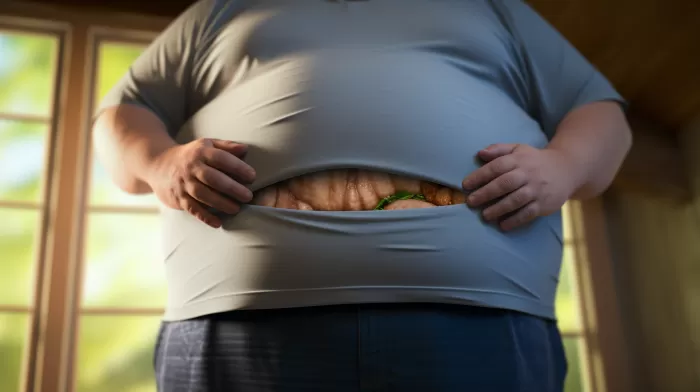Cancer and obesity are closely linked, with the American Cancer Society stating that extra body weight contributes to one in five cancer-related deaths. However, recent research has shown that dietary and metabolic factors play into your risk for what are commonly considered obesity-related cancers, even if you’re not overweight. Belly fat, in particular, is notorious for fueling health risks, including cancer. Your total body weight may be far less important to your cancer risk than the amount of belly fat you have.
Michigan State University researchers recently examined the connection between obesity and cancer by taking a closer look at fat. They discovered that fat releases a protein called fibroblast growth factor-2 in your body that causes non-cancerous cells to become cancerous. Furthermore, they found that not all fat did this at an equal rate. Belly fat was far more prolific at releasing this cancer-causing protein, and a specific type of belly fat – the lower layer of belly fat that surrounds your organs (known as visceral fat) – was pumping out this protein at alarming rates.
This study involved analyzing visceral fat from mice and from women undergoing hysterectomies who transferred their visceral fat tissue to mice. When this human fat had more fibroblast growth factor-2 in it, the mice formed more cancerous cells. Researchers believe this is a strong indication that fat from mice or humans can cause cells to turn cancerous. Additionally, they noted that estrogen could be a factor in obesity-related cancers, as fat also secretes estrogen.
###Banishing belly fat###
If you’ve ever tried to lose weight, you know targeting a specific area of your body for weight loss is difficult. However, when it comes to losing the deadliest weight of all – belly fat – there are some weight loss approaches that can accelerate the process, including:
Strength training: Building strength in your muscles causes your body to release fat-burning hormones that reduce belly fat.
Harnessing the power of hops: Hops supplements have been shown to reduce visceral fat in several studies.
Cutting carbs: Studies show that even a minor reduction in carb intake can lead to less belly fat.
Monitoring your copper intake: Ensuring you’re getting just the right amount of dietary copper can boost your body’s ability to burn fat.
Eating more mushrooms: A John Hopkins University study showed that cutting back on meat in your meals and replacing it with mushrooms can trim inches off your waistline.
By making healthier choices when it comes to diet and exercise and avoiding harmful habits like smoking, individuals can improve the odds in their favor when it comes to cancer risk.



